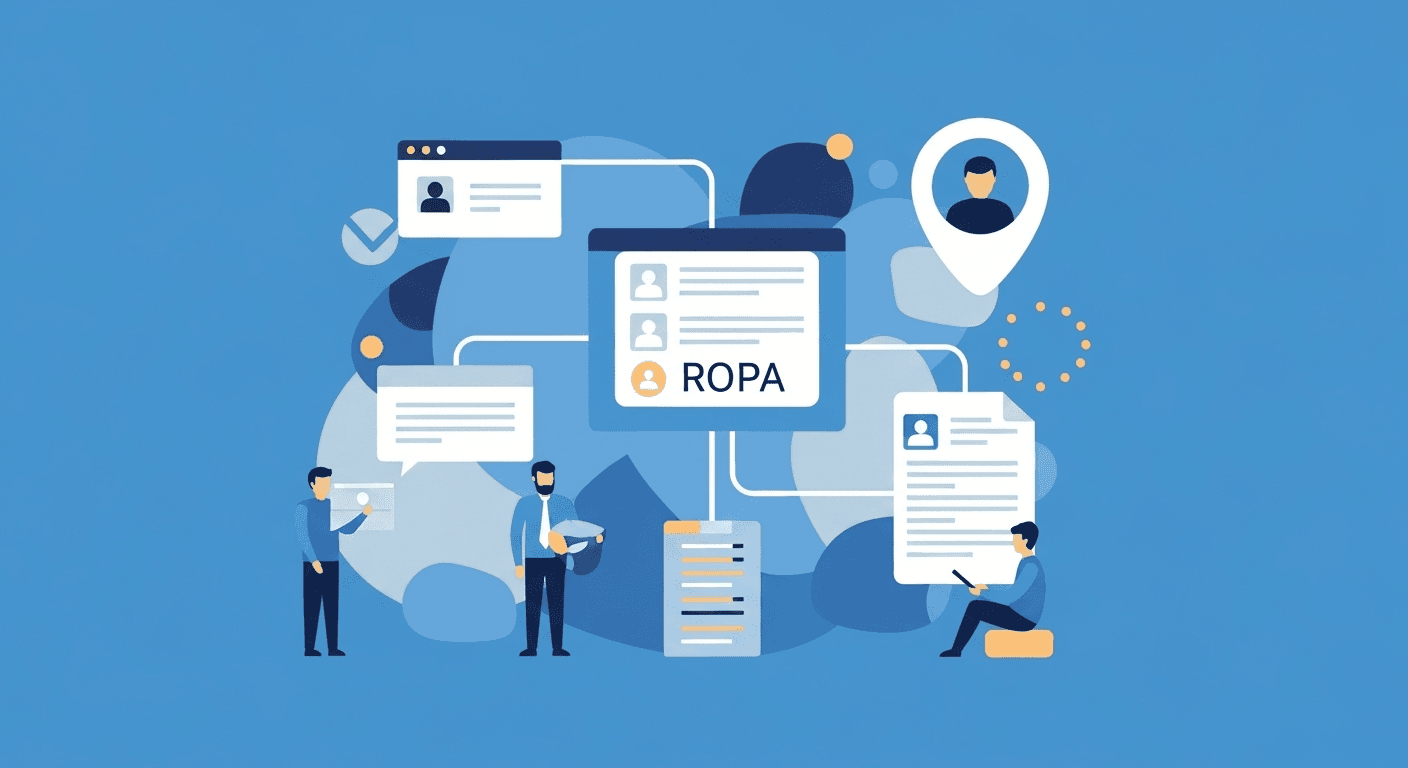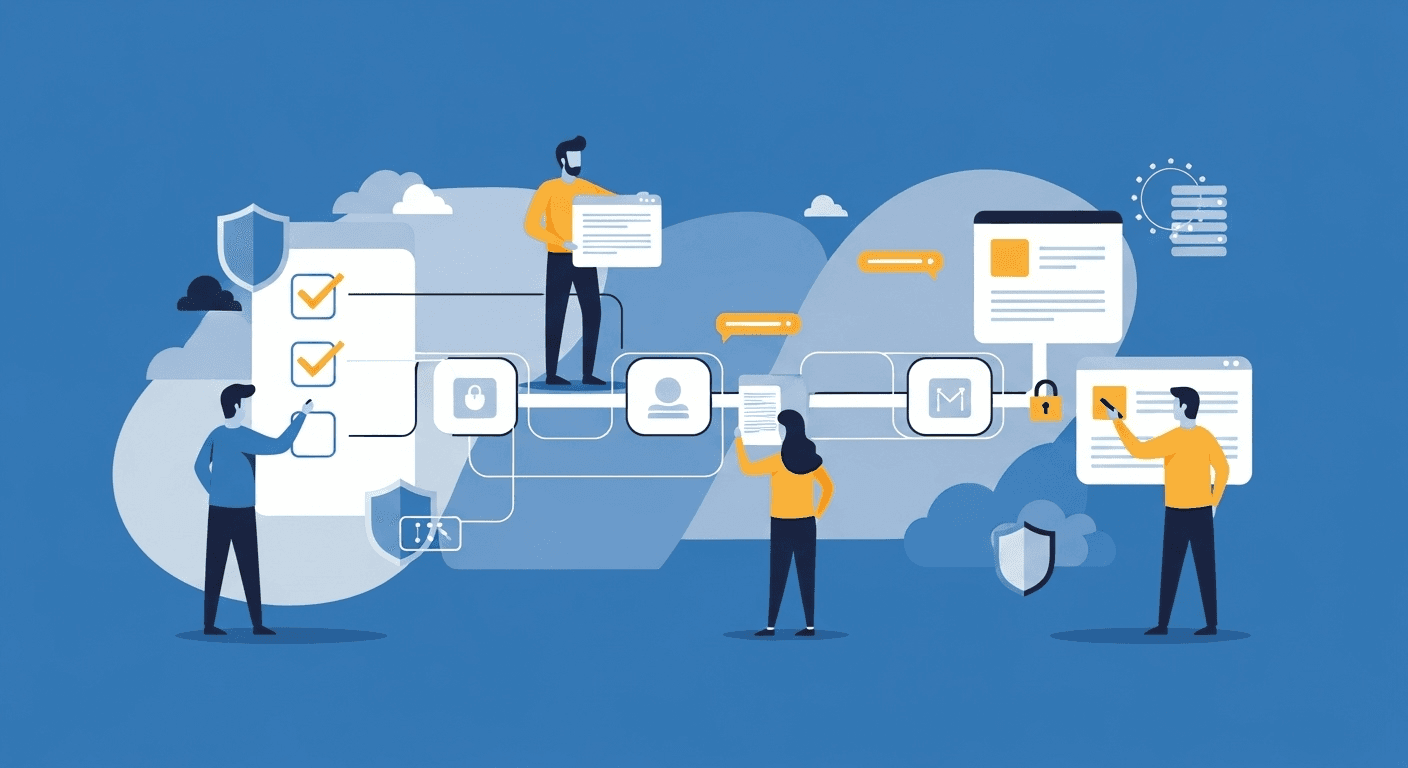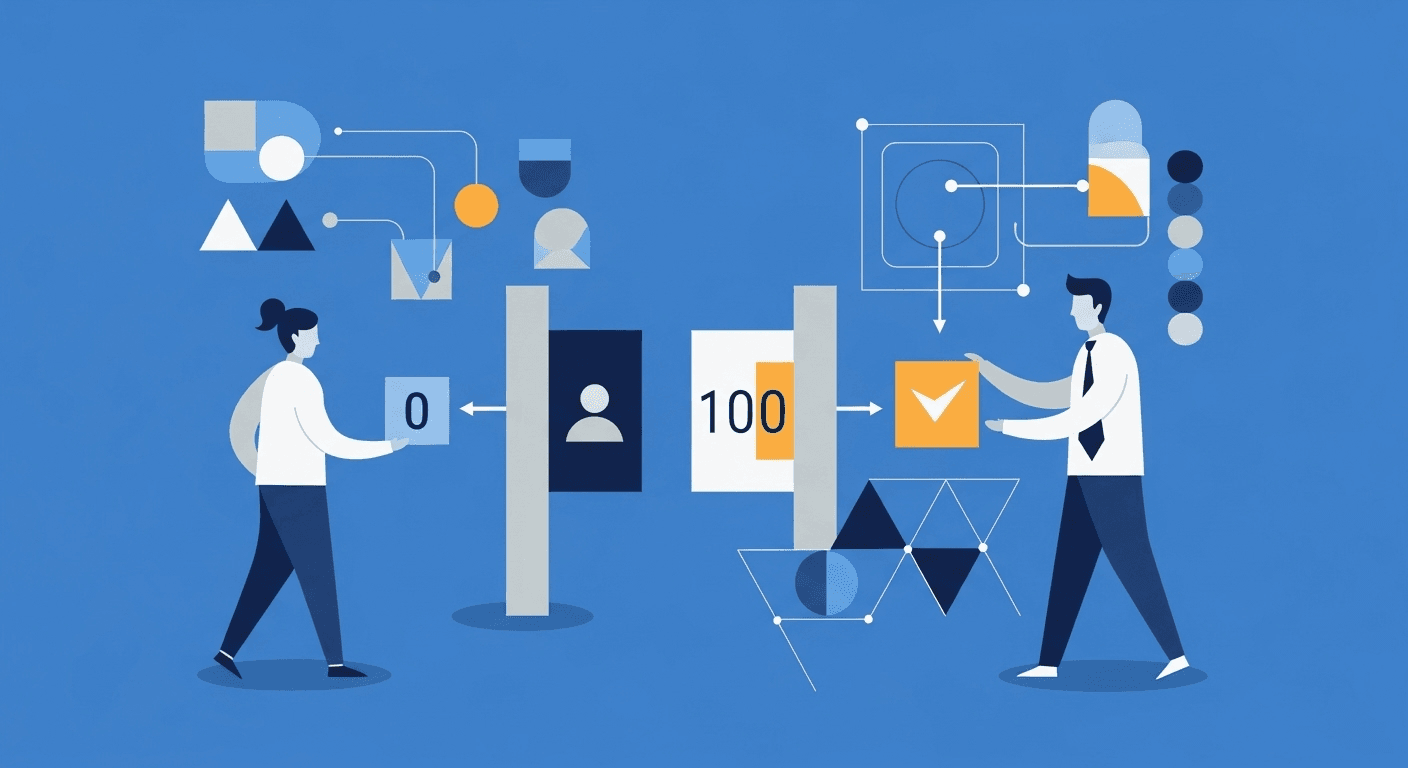Why Generic Privacy Policy Templates Put Your Business at Risk (And What to Use Instead)
Discover why one-size-fits-all privacy policy templates leave your business legally exposed. Learn the industry-specific requirements that generic templates miss and explore modern alternatives that actually protect your business.
I recently had a conversation with a SaaS founder who thought he was fully compliant because he'd downloaded a "comprehensive" privacy policy template from a legal website. Three months later, he received a GDPR inquiry from a European customer that his generic policy couldn't adequately address. The template didn't account for his specific data processing activities, international data transfers, or the unique ways his software collected user information.
This scenario plays out more often than you'd think. While privacy policy templates seem like an easy, cost-effective solution, they often create a false sense of security that can leave your business legally exposed.
Here's the thing: privacy compliance isn't one-size-fits-all. Your business has unique data practices, serves specific markets, and faces industry-particular risks that generic templates simply can't address. Let me walk you through why this matters and what you should do instead.
The Hidden Dangers of One-Size-Fits-All Privacy Policy Templates
Generic privacy policy templates are built for the lowest common denominator. They include broad, vague language that might technically cover basic scenarios but fails to address the specific ways your business actually collects, processes, and shares data.
The Legal Gap Problem
Most free templates were created years ago and haven't been updated for recent regulatory changes. The CCPA vs CPRA evolution alone introduced significant new requirements that older templates don't address. If you're using a template from 2020, you're likely missing critical CPRA provisions that took effect in 2023.
The Specificity Problem
Templates use placeholder language like "we may collect personal information" without defining what specific information you actually collect. This vagueness doesn't satisfy regulatory requirements for transparency. GDPR Article 13, for example, requires you to specify the exact categories of personal data you process.
The Jurisdiction Problem
A template designed for US businesses might completely miss European data subject rights, while one created for GDPR compliance might ignore California-specific requirements. If you serve customers across multiple jurisdictions, a single generic template leaves you exposed.
Industry-Specific Privacy Requirements You Can't Ignore
Different industries face unique privacy challenges that generic templates don't address. Let me break down the key considerations for major business sectors.
SaaS Companies: Your Unique Privacy Policy Considerations
SaaS businesses have particularly complex privacy requirements because of how they handle customer data:
Multi-Tenant Architecture Issues Your privacy policy needs to address how you isolate customer data in shared infrastructure. Generic templates don't explain data segregation practices or cross-tenant security measures.
API Data Processing If your software integrates with third-party services through APIs, you're likely sharing customer data in ways that templates don't anticipate. You need specific language about API data flows and third-party processor relationships.
International Data Transfers SaaS companies often use global cloud infrastructure, creating complex international data transfer scenarios. Your policy must address Standard Contractual Clauses, adequacy decisions, and transfer impact assessments.
Subprocessor Management You're required to maintain and disclose a list of subprocessors. Generic templates typically include vague language about "service providers" without the specific disclosure mechanisms GDPR requires.
E-commerce Businesses: Customer Data Collection Complexities
E-commerce companies face unique challenges around customer data that generic templates rarely address adequately:
Payment Processing Nuances Your privacy policy must clearly distinguish between data you collect directly and data processed by payment providers. The relationship between PCI DSS compliance and privacy regulations creates specific disclosure requirements.
Marketing and Analytics Integration E-commerce sites typically use multiple tracking technologies, recommendation engines, and marketing platforms. Each creates specific data sharing relationships that need individual disclosure.
Customer Account Lifecycle From guest checkout to account creation to subscription management, e-commerce customer journeys create complex data processing scenarios. Your policy needs to address each stage specifically.
Inventory and Fulfillment Data Shipping addresses, delivery preferences, and purchase history create ongoing data processing obligations that extend beyond the initial transaction.
Healthcare and Financial Services: Sector-Specific Compliance Requirements
Regulated industries face additional complexity that makes generic templates particularly dangerous:
Healthcare: HIPAA Meets Privacy Laws Healthcare businesses must navigate the intersection of HIPAA and state privacy laws. Your policy needs to address how you handle Protected Health Information (PHI) while also complying with consumer privacy rights under CCPA or GDPR.
Financial Services: Regulatory Overlap Financial institutions must balance privacy law requirements with existing financial regulations like GLBA, SOX, and industry-specific data retention requirements. Generic templates don't address these regulatory intersections.
Special Category Data Both industries regularly process "special categories" of personal data under GDPR, requiring additional legal basis and enhanced protection measures that standard templates don't cover.
How Modern Businesses Are Moving Beyond Static Templates
Smart businesses are recognizing that privacy compliance requires more than downloading a template. They're adopting approaches that reflect their actual business practices:
Dynamic Policy Generation Instead of static templates, forward-thinking companies use systems that generate policies based on their specific data practices. This ensures accuracy and completeness while maintaining legal compliance.
Regular Updates and Maintenance Privacy laws change frequently. Businesses need policies that evolve with regulatory requirements rather than becoming outdated the moment they're published.
Integration with Business Processes The most effective privacy policies are integrated with actual business operations. They reflect real data flows, actual retention periods, and specific processing purposes rather than generic placeholder text.
Building a Privacy Policy That Actually Protects Your Business
Creating an effective privacy policy requires understanding your specific business model, data practices, and regulatory obligations. Here's my recommended approach:
Start with Data Mapping Before writing a single word, map out exactly what data you collect, how you use it, where you store it, and who you share it with. This forms the foundation of an accurate policy.
Address Your Specific Jurisdictions Identify which privacy laws apply to your business based on where your customers are located and where you operate. Don't include irrelevant provisions, but don't miss applicable requirements either.
Use Clear, Specific Language Replace vague template language with specific descriptions of your actual practices. Instead of "we may collect personal information," specify "we collect email addresses, billing addresses, and usage analytics."
Plan for Maintenance Privacy laws evolve constantly. Build a process for regular policy reviews and updates rather than treating your policy as a "set it and forget it" document.
Test with Real Scenarios Walk through actual customer interactions and data requests using your policy. Can you actually fulfill the promises you're making? Does the policy accurately describe what happens to customer data?
The reality is that effective privacy compliance requires more than copying and pasting from a template. It requires understanding your specific business practices and translating them into legally compliant documentation.
That's exactly why we built PrivacyForge. Our AI-powered platform analyzes your specific business model, data practices, and applicable regulations to generate customized privacy documentation that actually reflects what your business does. Instead of generic templates that leave you exposed, you get precise, legally compliant policies that protect your business while meeting regulatory requirements.
Ready to move beyond risky templates? Generate your industry-specific privacy policy in minutes and ensure your business is truly protected.
Related Articles
Ready to get started?
Generate legally compliant privacy documentation in minutes with our AI-powered tool.
Get Started Today

